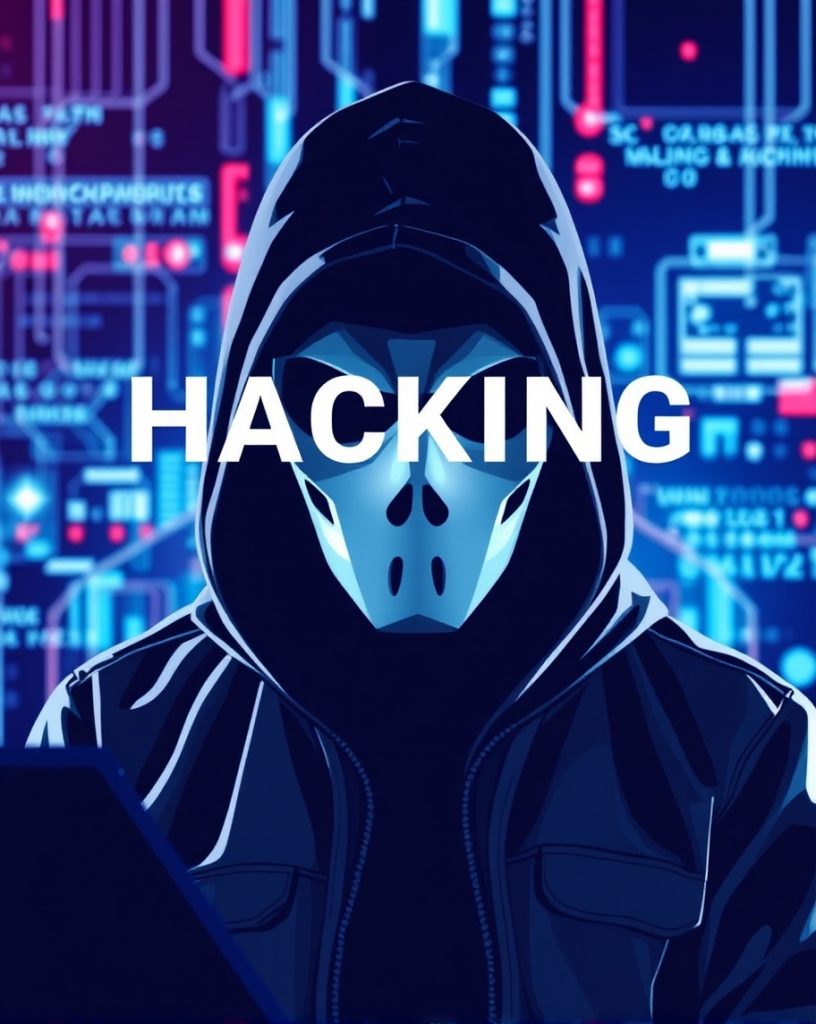
In today’s digital world, Learning Hacking has become a crucial skill for anyone interested in cybersecurity, ethical hacking, or even just protecting their personal information online. As cyber threats continue to rise, understanding the fundamentals of hacking is more important than ever. This comprehensive guide will cover essential topics, tools, resources, and strategies for those embarking on the journey of Learning Hacking.
Table of Contents
Understanding the Basics of Hacking
Before diving into the various techniques and tools available for Learning Hacking, it’s essential to understand what hacking entails. Hacking is not just about breaking into systems; it encompasses a broad spectrum of activities, including:
- Ethical Hacking: Gaining permission to test systems for vulnerabilities.
- Penetration Testing: Simulating attacks to identify security weaknesses.
- Script Kiddies: Individuals using pre-written scripts to perform attacks without deep understanding.
For more on the types of hackers and their roles, check out Cybersecurity Basics: What You Need to Know.
Why Learning Hacking is Important
The increasing reliance on technology has led to an uptick in cyber attacks, making Learning Hacking essential for both individuals and organizations. Here are some key reasons to consider:
- Career Opportunities: The cybersecurity field is rapidly growing, with a high demand for skilled professionals. According to the U.S. Bureau of Labor Statistics, jobs in information security are projected to grow 31% from 2019 to 2029.
- Personal Security: Understanding hacking can help you protect your personal data from potential threats. Learning how attackers think will empower you to take proactive measures in safeguarding your information.
- Ethical Responsibility: As more people and businesses transition to digital platforms, ethical hackers play a critical role in identifying and mitigating risks, ensuring a safer online environment for everyone.
Getting Started with Learning Hacking

To kick off your Learning Hacking journey, consider the following steps:
1. Master the Fundamentals of Networking
A strong understanding of networking is crucial for hacking. Familiarize yourself with concepts such as:
- IP Addresses
- Subnetting
- Network Protocols (TCP/IP, UDP, etc.)
For comprehensive resources on networking basics, visit Cisco’s Networking Basics.
2. Explore Programming Languages
Programming knowledge is vital for aspiring hackers. Start with these languages:
- Python: Known for its simplicity, Python is widely used for writing scripts and automating tasks.
- JavaScript: Essential for understanding web vulnerabilities, as many attacks target websites.
- C/C++: Helps in understanding how operating systems and applications interact with hardware.
3. Learn About Operating Systems
Familiarize yourself with various operating systems, especially:
- Linux: Preferred by many hackers due to its flexibility and control over system configurations.
- Windows: Understanding Windows security features is essential as it is widely used in corporate environments.
Consider enrolling in online courses that specialize in these areas. Platforms like Udemy and Coursera offer courses specifically on Learning Hacking and cybersecurity fundamentals.
Tools for Learning Hacking
Once you’ve grasped the basics, explore the following tools to enhance your Learning Hacking experience:
- Kali Linux: A popular distribution used for penetration testing, packed with numerous security tools.
- Metasploit: A framework that helps in finding vulnerabilities in systems and applications.
- Wireshark: A network protocol analyzer that allows you to capture and analyze packets in real time.
- Burp Suite: An integrated platform for performing security testing of web applications.
For an in-depth guide on these tools, check out Top Hacking Tools for Beginners.
Joining the Hacking Community
Networking with fellow hackers can enhance your learning experience. Consider joining forums and communities like:
- Reddit: Subreddits like r/hacking and r/netsec provide valuable insights and discussions.
- Hack The Box: A platform for learning and practicing penetration testing in a safe environment.
- OWASP: The Open Web Application Security Project offers resources and tools for improving software security.
Continuing Your Education in Hacking
As you progress in Learning Hacking, remember that cybersecurity is an ever-evolving field. Stay updated with the latest trends, tools, and techniques by following blogs, attending webinars, and participating in workshops. Here are a few valuable resources:
- Cybrary: Offers free online courses on various topics in cybersecurity.
- Krebs on Security: A blog by journalist Brian Krebs that covers current events in the security world.
Conclusion: Embrace the Journey of Learning Hacking
Learning Hacking is a rewarding journey that equips you with essential skills to navigate the digital landscape. By mastering the fundamentals, utilizing the right tools, and engaging with the community, you can become a proficient hacker, contributing to a safer online environment.
Stay curious, keep learning, and remember: ethical hacking is about using your skills for good. With dedication and the right resources, you can make a significant impact in the world of cybersecurity.


Pingback: Top 10 Airdrops in December 2024 - Seenaaf
m4fjvj